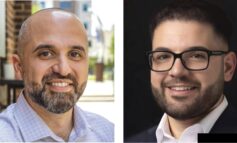MICHIGAN — The massive protests against Egyptian President Mohamad Morsi and his ultimate ousting by the army on Wednesday, July 3 have divided Egyptians, between those who support the overthrow of the president, and those who want him to stay in power until his term expires in 2016. The division has caused violent clashes between protesters in Egypt’s streets.
Michigan is home to thousands of Egyptian Americans, and local Egyptians differ democratically, but peacefully, over the political crisis that is unfolding in their homeland.
“The Egyptian community here is a mirror to what is happening in Egypt,” said Ahmed Ghanim, an Egyptian American who lives in Royal Oak, in describing the opposing views towards Morsi by members of the community as a sign of diversity, not of conflict.
“No animosity exists between Egyptians here; no conflict,” confirms Ola Elsaid, an Egyptian American, who resides in Ann Arbor. “I haven’t seen anyone lose a friend over this. We respect each other’s opinions.”
Elsaid, a physician, said that she supports Morsi’s ousting; because of the way he catered to the interests of the Muslim Brotherhood, over those of the Egyptian people, because of his failure to deal with the protesters’ popular demands.
“Morsi has failed in governing the country and accommodating the needs of the people,” she said. “He only listens to his group of people (the Muslim Brotherhood) and doesn’t trust, or seem to be concerned with the rest of the country.”
Ghanim, who works on the commercial side of the medical field, considers Morsi to be the legitimate president of Egypt and describes his overthrow by the army as a “coup.”
“Welcome to the military coup,” he said. “A few seconds after announcing the coup, there was a major crackdown on media, by shutting down three independent TV stations.”
After announcing a road map that would oust Morsi, the army closed at least six media outlets affiliated with the Muslim Brotherhood and arrested leaders of the Islamic political party.
Ghanim said that the crackdown may go as far as to ban the Brotherhood as a political party, as it was disallowed during the time of dictator Hosni Mubarak, who was overthrown by the popular 25 January Revolution in 2011.
“I have the opinion of anybody in the free world; armies should not intervene in politics,” stated Ghanim.
However, Elsaid said that the army in Egypt is representative of the people, who have high regards for it as an institution.
“The people and the army have a special relationship,” she added. “Soldiers are, after, all members of the society. Everybody has a relative in the army in Egypt. The army is the savior of the country from any catastrophe.”
She said that the army stepped in to protect the Egyptian people, especially after some Islamist hardliners made threats of violence against the protesters and called them infidels “under Morsi’s watchful eyes.”
Elsaid said that in an ideal world, she would have liked Morsi to stay in office until the end of his term, with the election of a new parliament that is not controlled by the Muslim Brotherhood. However, after millions took to the streets to demand his overthrow on June 30, the first anniversary of his inauguration, change was inevitable.
“We could not wait three more years to elect a president who knows what he’s doing,” she added. “Egypt’s stability is important to the entire region. Trial and error is not an option right now.”
Ghanim acknowledged that the recently ousted president’s popularity had dwindled in recent months, due to mistakes committed by him and a smear campaign conducted by the media.
“There were false accusations circulating against President Morsi, and he did not have a media team to defend himself,” he added. “Like some people here tried to convince Americans that Obama is Kenyan, media outlets in Egypt would say Morsi sold the Pyramids and the Suez Canal to Qatar.”
However, Ghanim explained that a drop in the popularity of a democratically elected president should not lead to his premature overthrow. He drew an analogy with some American presidents’ low approval ratings.
He said that the protesters are a mix of different groups–religious minorities who fear Islamists, remnants of the Mubarak regime, and true revolutionaries with legitimate demands.
“What if a new secular president is elected and in six months Islamist forces rally a million people against him?” he asked. “Are we going to change the president every six months?”
Elsaid, whose relatives descended on Tahrir square to protest against Morsi, described the protesters as “loyal Egyptians.”
She said that Morsi was acting like his dictatorial predecessor in the way he appointed unqualified people to government posts for political gains.
In contrast, Ghanim described him as a democrat, who allowed freedoms to the point of “anarchy and chaos.”
Both Elsaid and Ghanim agreed that Egyptians abroad were more united during the 2011 revolution. Ghanim said that nobody has put out a statement in the name of Egyptians in Michigan. Elsaid added that many Egyptians in the State have Islamist leanings, support the Muslim Brotherhood and might disapprove of the job Morsi has done, but they disagree with his ousting.





Leave a Reply